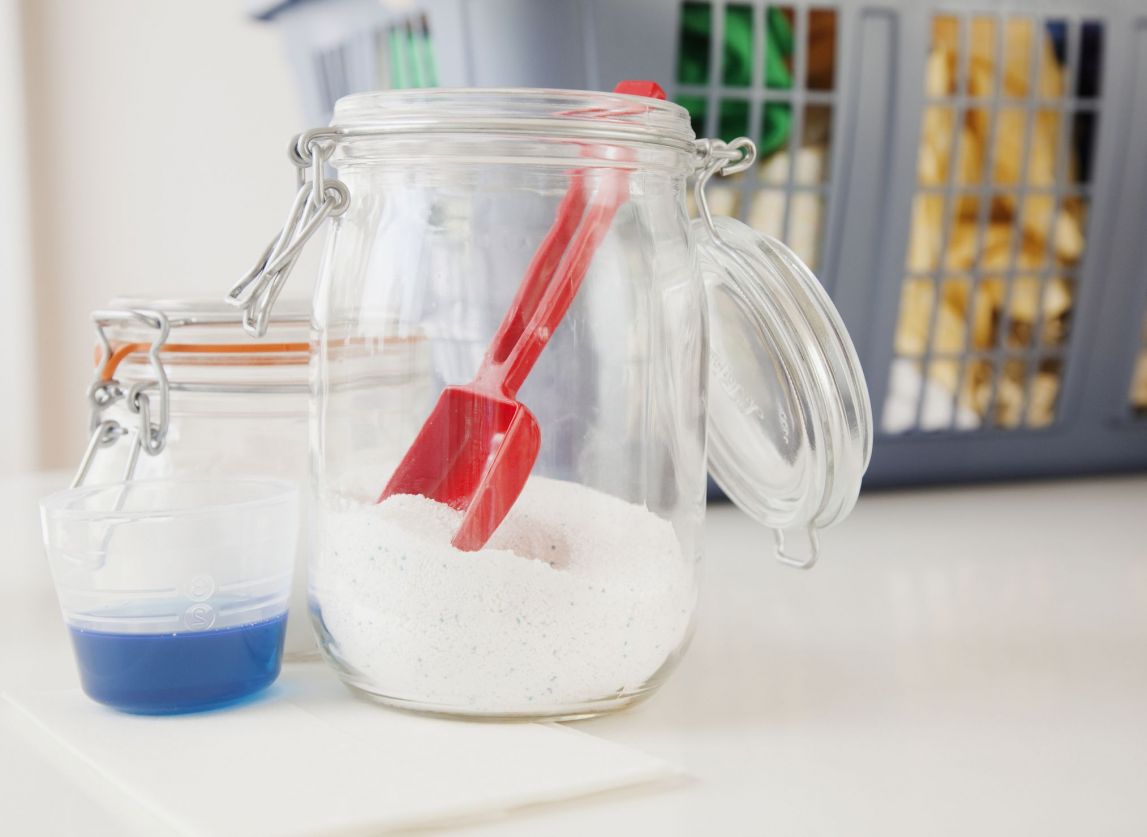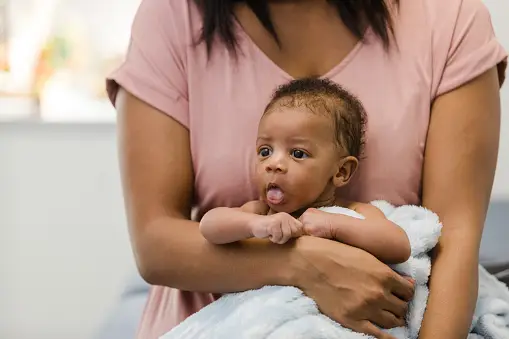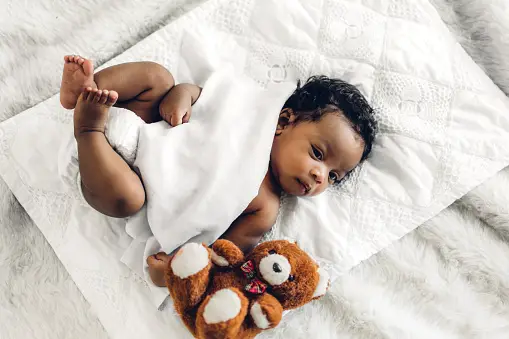Different from cosmetics, detergents are not completely regulated, even in the western part of the country. Your baby's safety with laundry detergent is solely in your hands. Using harsh detergents for your baby's fabrics, like their beddings, napkins, and towels can pose a severe risk to their health.
Some common reactions and effects that pediatricians have noticed over time from the use of harsh detergents are:
- 1. Rashes
- 2. Newborn peeling skin
- 3. Skin reactions
Besides the effect on their skin, there are other possible consequences, like eye irritation, breathing difficulties, and asthma.
/best-laundry-detergents-skin-sensitivity-and-allergies-2146626-01-63961aae2a164b92b3f968d56f102c13.jpg)
How to pick the suitable detergent for your baby
There are certain factors to help you identify ingredients to ensure the products are genuinely mild.
1. Fragrance: Ensure that the detergent is completely fragrance-free. Keep in mind that "unscented" does not mean fragrance-free.
“There might be ingredients added to the product to mask its scent making it unscented,”. says Dr. Amna Husain a board-certified pediatrician.
These chemicals give the detergent a fresh, dewy fragrance that can cause skin reactions, allergies, and rashes.
2. Chemical dyes: Almost every detergent brand tries to outdo its competitors by creating or improving its products to give consumers a clean wash without the clothes losing their color. Marketers feature this as one of the significant benefits of using one brand over the other.
However, the chemical dyes used to achieve this feat can be some of the most irritating ingredients in a detergent. For your baby's safety, pick detergents that do not contain chemical dyes.
3. SLES (Sodium Laureth Sulphate): This ingredient's function is one of the major influencers on detergent purchase decisions as Nigerians.
"E dey foam?"
Sodium Laureth sulfate is responsible for detergent lather. This foaming agent removes dirt from fabrics, but the consequences on a baby's skin far outweigh the benefits.
It can cause severe skin and eye irritation and an excellent lung damage risk.
Now, you know what a baby-friendly detergent should not contain, below is a list of pediatrician-approved features of a suitable baby detergent:
- 1. Hypoallergenic
- 2. Sensitive skin friendly
- 3. Plant-based ingredients
- 4. Zero enzymes
- 5. Bleach/phosphates free
The best baby detergents are commonly made with gentle surfactants, which can get rid of tough stains.
Experts also advise using liquid detergents over powdered ones because they are less likely to leave residue in your baby's clothes that can irritate their skin.

Baby laundry best practices
When you get a new detergent for your baby, check to see that it does not lather too much. We recommend that you even carry out a patch test. Wash just one item, so it's easier to observe its effects on your baby's skin.
Using regular detergent might seem more convenient because of the cost, cleaning ability, and ease of use. But in the long run, staying away from harsh detergents is safer.
Lastly, one more reason your baby might react badly to a new detergent is that they have sensitive skin. A child with skin problems may be more prone to reactions from harsh laundry detergent. “A family history of eczema also puts your child at greater risk”, says Cleveland Clinic pediatric dermatologist Joan Tamburro.
At this point, you may be wondering how to implement all you have learned so far since babies run through clothes so quickly.
These are some tips to help:
- 1. Attack stains right away. When your baby spits up, use a baby wipe or wet napkin to get as many colors off as you can.
Diaper accident? Wash immediately, and don't leave it to sit for long.
- 2. If you use cloth diapers, wash them with hot water, then double soak them before a final wash.
You can never be too cautious with your baby. Even when you buy new clothes, wash them to rid them of dust, germs, and preservatives from the manufacturing warehouse. Remember to use only hypoallergenic detergents for this activity.
Take extra care when choosing the proper detergents for your babies.
If you have recommendations, comment below.
A safe baby is a healthy baby.










Comments